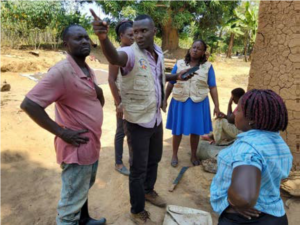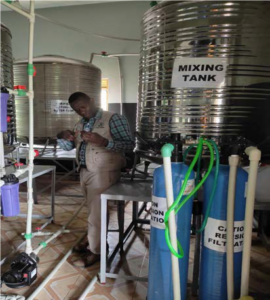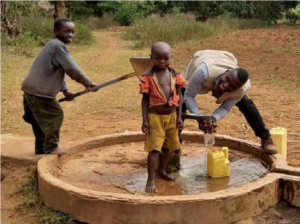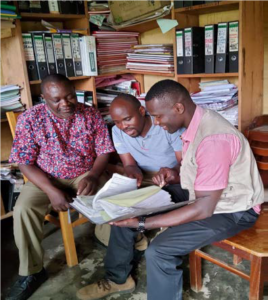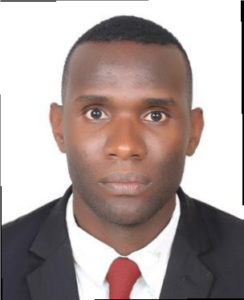 |
Dr. Robert ZavugaBDS (MUK), MPH (MUK) Host Site: Public Health Emergency Operations Center (PHEOC)
|
||||
ABOUT THE FELLOWRobert is an accomplished epidemiologist. He is a holder of a Master of Public Health with a medical background. He has particular interests in global health security, statistical modeling, and artificial intelligence. During the fellowship, he was attached to the Public Health Emergency Operations Center (PHEOC) which acts as a central coordinating unit of all public health emergencies in Uganda. The PHEOC is responsible for preparedness coordination, response, and recovery from public health emergencies. The training has empowered Robert with great knowledge and skills in public emergency coordination and response. He has attained astute leadership skills, worked with big data sets, and interpreted them for proper use. He also supported the event-based surveillance (EBS) unit at the PHEOC where he monitored and triaged public health signals in the communities thereby contributing to early detection, preparedness, and response to public health emergencies. Achievements at the Host Site
Fellowship program specific achievements
Written Communication
Edited the Uganda National Institute Public Health (UNIPH) epidemiological bulletin issue 1 volume 8, 2023, and also published 6 articles in the same.
Summary of Epidemiological Study:Title: Assessment of healthcare worker resilience at the epicenter of the 2022 Sudan virus disease outbreak in Uganda: implications for future preparedness Background: Healthcare workers’ (HCWs) mental resilience can be challenged during times of adversity, including outbreaks. On September 20, 2022, the Uganda Ministry of Health declared a Sudan virus disease (SVD) outbreak. We assessed the level and determinants of resilience at the workplace among HCWs in the most affected districts (Mubende and Kassanda districts) in Uganda. Methods: During March 2023, we conducted a cross-sectional survey among all HCWs (clinical and non-clinical) working during September 20, 2022 – January 23, 2023 (the outbreak period) in the three health facilities with Ebola treatment units (ETUs) in Mubende and Kassanda districts. Risk perception was assessed using 12 statements with a 4-point Likert-type scale. We assessed resilience using the Connor-Davidson Resilience Scale (CD-RISC-10). Resilience was dichotomized into ‘not resilient’ (score 1-29) and ‘resilient’ (score 30-40). Logistic regression was used to identify factors associated with resilience. Results: Of 429 eligible HCWs, 400 (93%) were interviewed. Mean age was 35 (range: 20-58) years; 222 (56%) were male and median work experience was 8 years (range:1-38). One hundred and ten (28%) were support staff and 72 (18%) were nurses; 344 (86%) worked >40 hours per week. Overall, 93 (23%; 95%CI: 19-25%) were resilient. Three hundred and fifty-six (89%) expressed fear of contracting SVD and 356 (89%) expressed concern about stigma at their workplace if they became infected. Resilience was associated with age >40 years (adjusted odds ratio [AOR]=2.1; CI=1.3-3.5), work experience >10 years (AOR=2.2; CI=1.1- 4.7), working >40 hours per week (AOR=6.8; CI=2.1-23), and receiving Ebolavirus-specific counselling (AOR=3.3; CI=1.7-6.5). Conclusion: Most HCWs at SVD ETUs in highly-affected districts in Uganda faced resiliency challenges during the outbreak, related to their infection risk and treatment by others if they became infected. Counseling and mental health support to HCWs and addressing concerns that bring them a high risk of infection could improve on their resilience during future outbreaks. Key words: Resilience, Heath care workers, stress, Ebola Key lessons learnt during the fellowship
|
|||||
|
|
|
|
|
|

